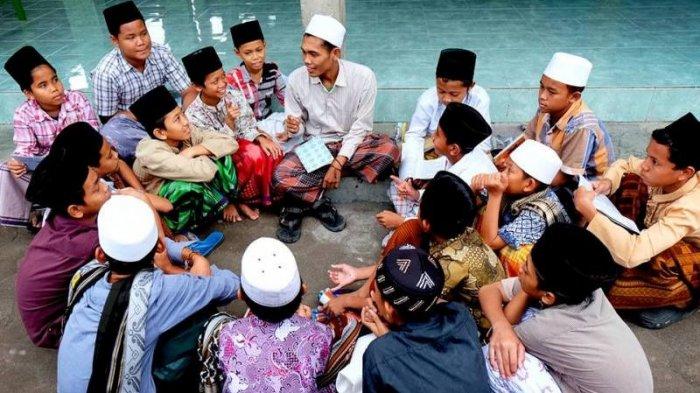Like every year, Muslims around the world are welcoming the holy month Ramadan. Yet we have been shocked by suicide bombing by terrorism. Sri Lanka bombing, which was happened few days before Ramadan, was the latest terror that is painful for every Muslim. Moreover, the target of terrorism is the Christian worship place and the perpetrators are evidently Muslim. It destroys inter-religious relationship between two religions.
Furthermore, the statement of some Muslim leaders which openly declared “the martyrdom” for people who committed the suicide bombing. It worsened the peaceful relationship that Muslims and Christians has built along the day. Such claim of martyrdom seemingly demonstrates that Islam justified the violence in the name of religion. Consequently, the most important thing is to understand Islam and its value as well as possible, which related to the worship (ubudiyyah) and social (muamalah) aspect. Thus, the Ramadan fasting as annual worship for Muslims could be interpreted as the learning process to build the tolerance.
Below are two meanings of tolerance which are taken from fasting ritual in Ramadan:
First, fasting is an act of worship ritual that belongs to all religion. Not only Islam but also the other religion with different procedure of fasting in each religion. Long before Islam came, the Jewish, Christians and Shabi’in (Sabian), three religions which already developed in Mecca in the 6th century AD. Those are among the first religion to conduct fasting. As the Holy Qur’an mentioned that fasting is decreed to the people before us.
“O you who have believed, decreed upon you is fasting as it was decreed upon those before you that you may become righteous” (al-Baqarah: 183)
The explanation above contains the fundamental meaning of tolerance that all religions have a similiar ritual which adopted and modified from the previous religions that existed. Therefore, in terms of practicing the ritual, people must not to be haughty, to compete the righteousness of their own religion, to label other religion by the term of “infidel”. Since fasting is a similiar ritual among religions, we have to knit and strengthen peace to other religion, help each other, and specifically, uphold a brotherhood among people of the nation.
Second, there is prophetic lesson in fasting. It is the noble character that does not allow to feed our own inner desire. We must not to abuse and revenge other people even though we are under threat and abuse. In a hadith which was narrated by Bukhari, the Hadith number 1894, stated that if someone fasting is threatened by others with abuse or threats, thus he should say “inni sha’imun” (verily, I am fasting) to prevent a revenge.
This order of Prophet Muhammad emphasized that people who are fasting must reflect their own selves to be a pious people. Not only being individual pious person but also social pious one. To be “silent” when other people abused us does not mean we lose. Instead, the “silence” gives an advice to the abuser that being ebusive is not right by saying to him/her the word “inni sha’imun” shich could also mean “I am trying to be kind by refraining my anger”. Recent situation when people tend to easily spread hate speech and to share hoaxes, this valuable lesson is practical in responding the outspread of hate speech and hoaxes. We may call it a fasting shield.
The “fasting shield” reinforces people who are fasting, that they should refrain themselves from the anger, the arbitrary action, and the revenge from other people’s abuse. The abuse cannot be responded with another abuse. Instead, the abuse must be responded with kindness.
As what we may take from a popular quote: an eye for an eye will make the whole world blind. Thus, fasting in Ramadan is beyond absenting ourselves from food and drink. It is also refraining ouself from feeding anger and revenge, and spreading love to every humankind.
![Islami[dot]co](https://en.islami.co/wp-content/themes/jambualas/images/logo.png)


